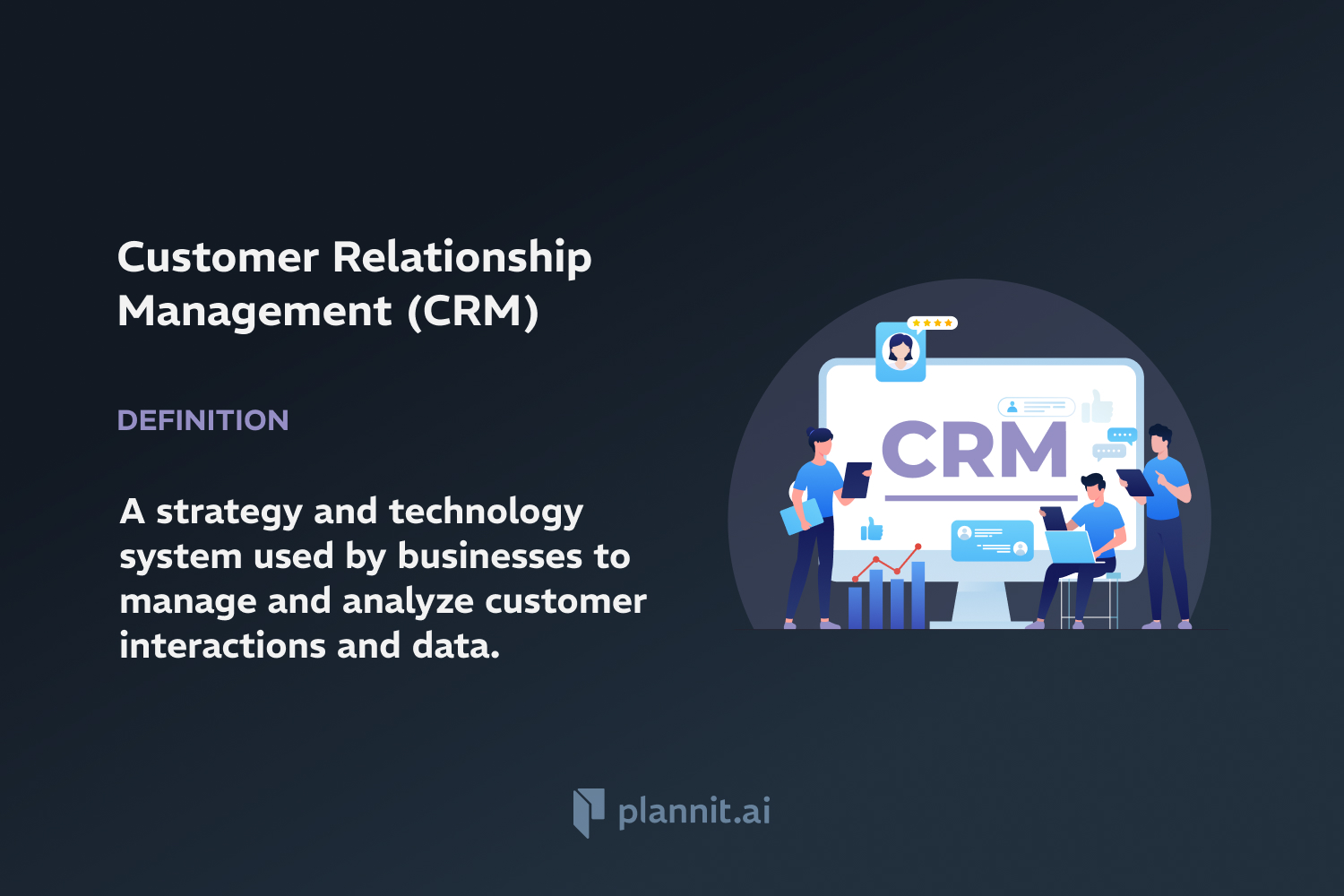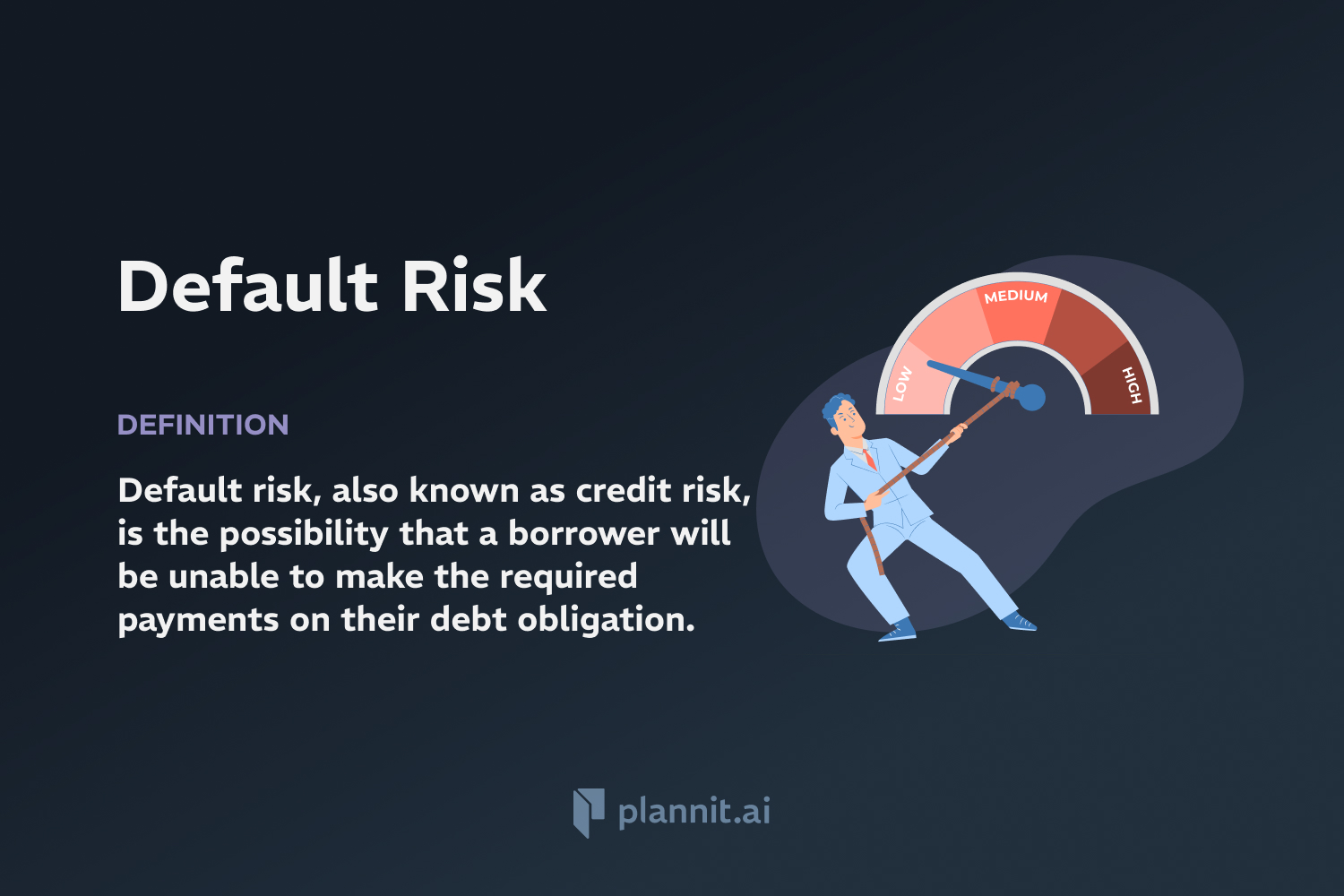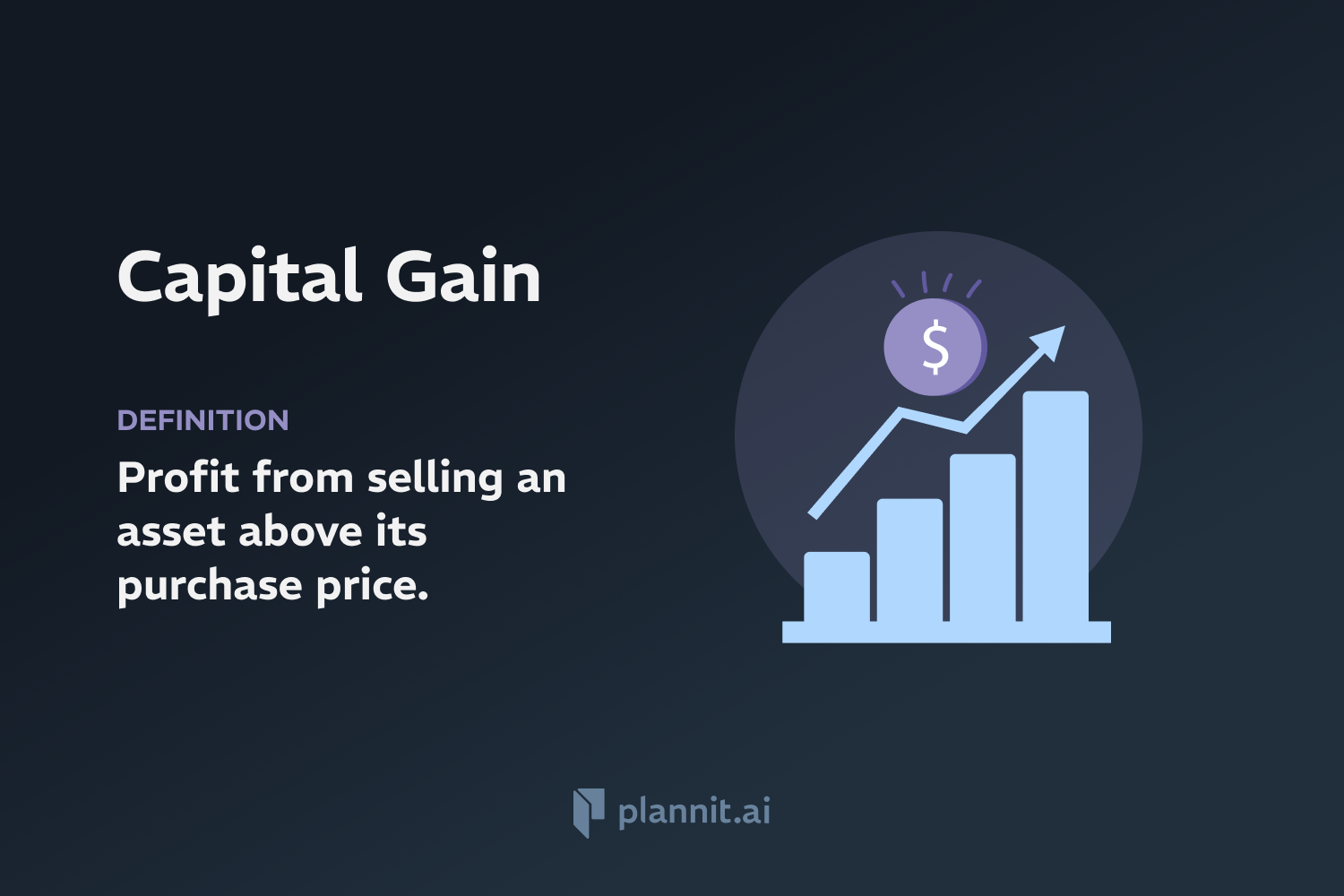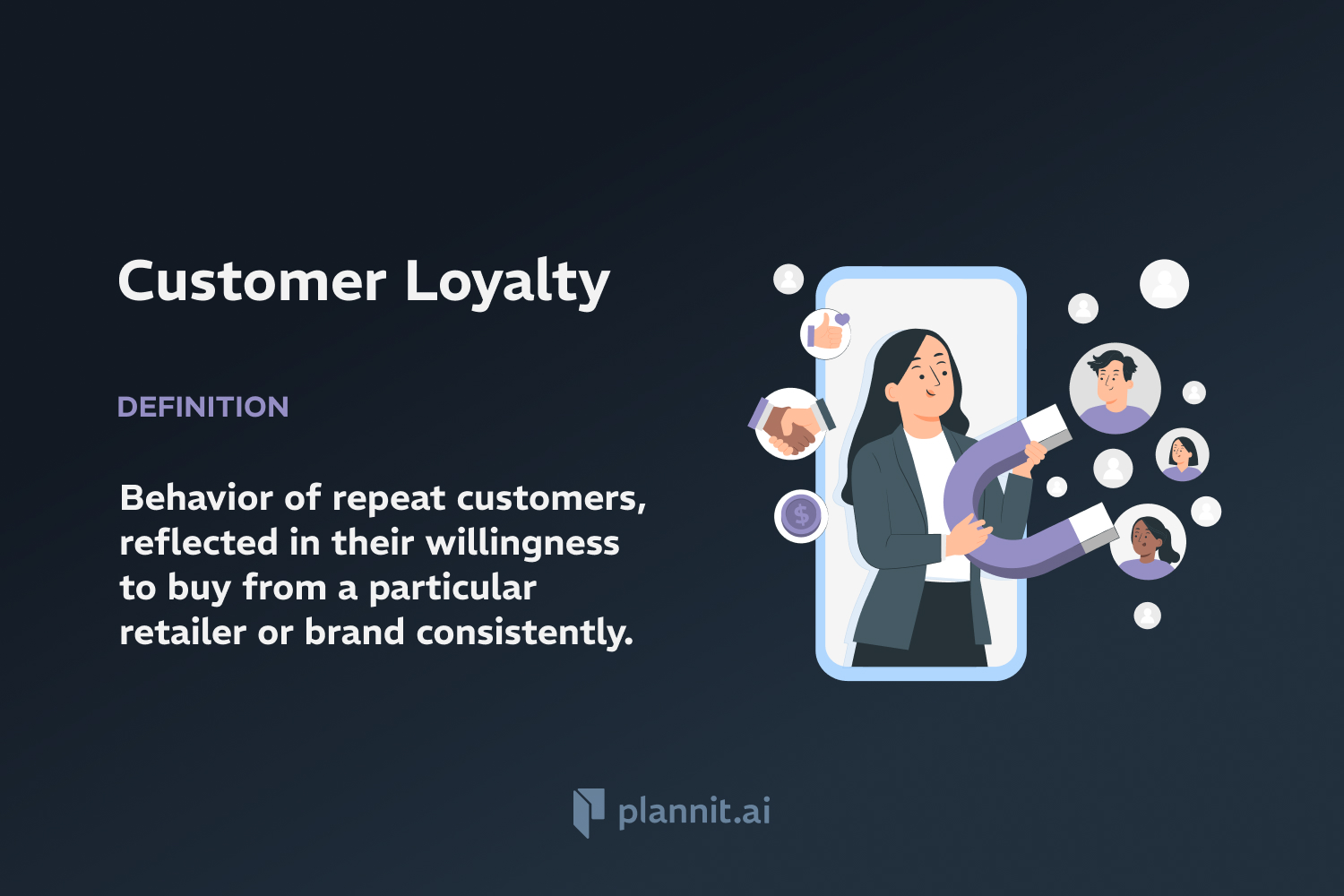Need Help With Your Business Plan?
Answer tailored questions and get a detailed business plan in minutes.
Customer Relationship Management (CRM): Definition & In-Depth Explanation

Definition:
Customer Relationship Management (CRM) refers to the practices, strategies, and technologies that companies use to manage and analyze customer interactions and data throughout the customer lifecycle. The goal is to improve customer service relationships and customer retention, and drive sales growth.
Context of Use:
CRM systems are used in many industries to support sales management, deliver actionable insights, integrate with social media, and facilitate team communication. Effective CRM strategies enable businesses to collect and manage large amounts of customer data and streamline processes across multiple channels.
Purpose:
The purpose of CRM is to foster better customer relationships, enhance customer loyalty and satisfaction, which, in turn, impacts overall business revenue and efficiency. CRM solutions consolidate customer information into a single database, allowing businesses to provide more personalized service and predict customer needs.
Example:
Sales Automation: A CRM system automates tasks related to sales, tracks customer interactions, and analyzes sales forecasts and performance.
Customer Service: Companies use CRM tools to handle customer inquiries and issues more efficiently by providing staff with quick access to customer information, interaction history, and support resources.
Related Terms:
Lead Management: The process of tracking and managing prospective customers. Often used in conjunction with CRM systems to automate marketing and lead nurturing processes.
Marketing Automation: The use of software to automate marketing processes such as customer segmentation, customer data integration, and campaign management.
Salesforce Automation: Designed to automate phases of the sales process, enhancing the effectiveness of sales records and management of customer relations.
FAQs:
1. What are the main components of a CRM system?
A: Typical components include a contact management system, sales tracking, customer interaction management, and workflow automation.
2. How does CRM contribute to business growth?
A: CRM systems help in identifying sales opportunities, optimizing marketing efforts, and improving customer service, all of which enhance customer satisfaction and retention.
3. Can CRM systems be integrated with other business applications?
A: Yes, modern CRM systems can be integrated with various business applications, including email marketing tools, financial software, and more, to ensure seamless operations across all departments.
4. What is the impact of CRM on customer service?
A: CRM tools provide comprehensive customer insights, which enable personalized interactions and quicker service resolutions, improving overall customer satisfaction.
5. Are there different types of CRM systems?
A: Yes, there are operational CRMs, analytical CRMs, and collaborative CRMs, each focusing on different aspects of customer relationships, from direct interactions to data analysis and sharing across departments.
Get funding with a business plan that will impress investors.
Starting a New Business?



